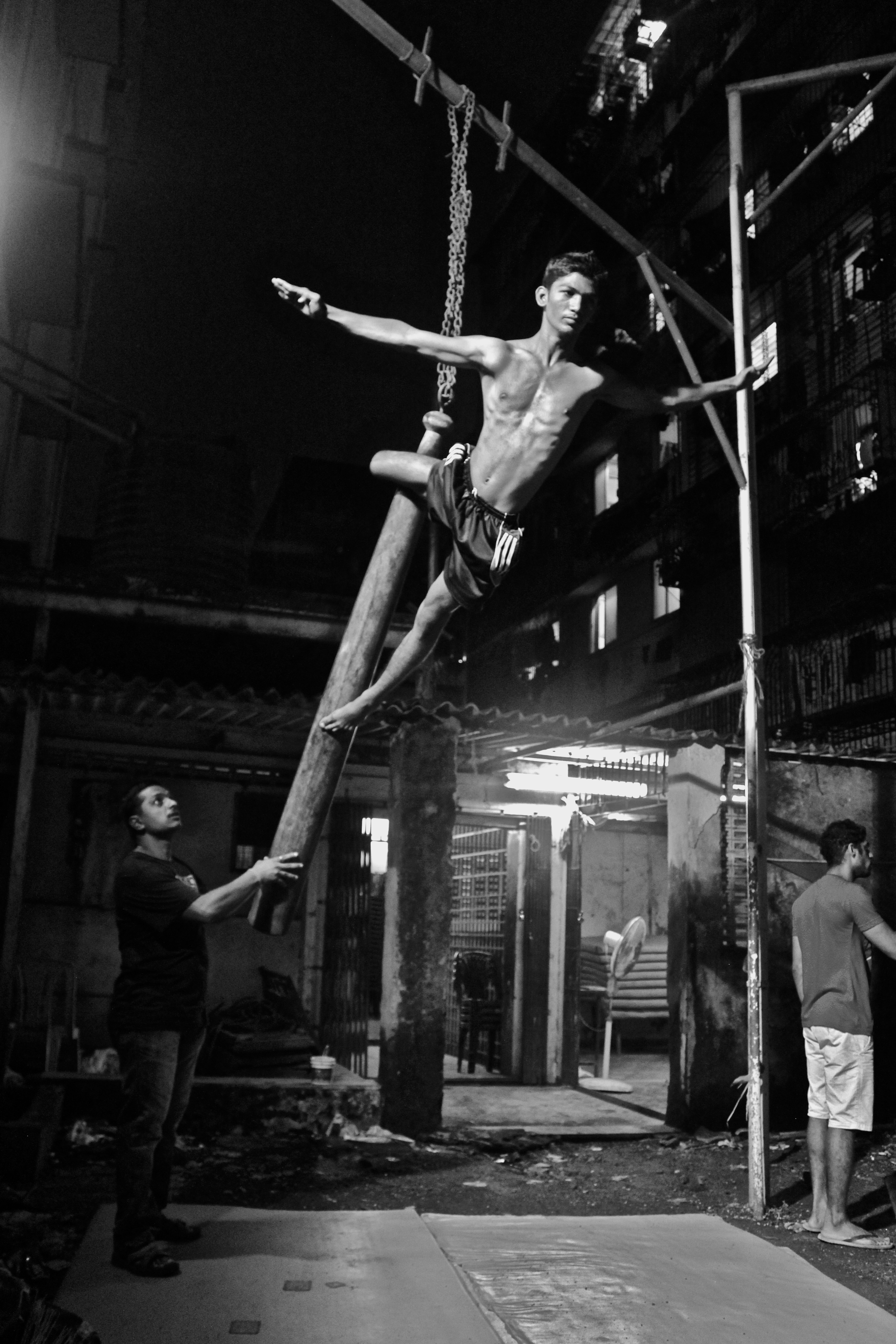Athletes perform 90-second routines packed with intricate skill combinations as a panel of three judges assesses each competitor’s speed, grace, and difficulty on one of the sport’s three apparatuses: Pole Mallakhamb, Hanging Mallakhamb, or Rope Mallakhamb. It is an insular sport that exists nowhere else in the world. And although its sole governing bodyâ€"the Mallakhamb Federation of Indiaâ€"organizes a handful of national competitions each year, the sport is mainly a Marathi Hindi practice. In a country where cricket is thought of as the unifier of over one billion people, Mallakhamb is a blip on the radarâ€"an eccentric regional phenomenon largely tucked away in Maharashtra.

“Mallakhamb is history’s hardest sport that no one knows,†says coach Uday Deshpande before he catapults into a forward flip, landing four feet up a wooden pole by catching it between his thighs. With roots in Hindu monkey god mythology, bellicose ancient fighting traditions, and an unexpected brush with British colonialism, Mallakhamb may be history’s oddest sport, too.
Deshpande, a legendary guru and one of the sport’s foremost authorities, knows Mallakhamb better than perhaps anyone.
Though he carries a deceptive slouch in his slight frame, the sprightly 60-year-old still rises before dawn each morning to head the training facility in central Mumbai. For four decades, Deshpande has ushered over 50,000 students into this cramped, derelict building of corrugated metal and crumbing cement. Although the gymnasium now sits in the shadow of encroaching skyscrapers, his institution is one of the few physical education facilities left where traditional Indian sports like Mallakhamb are cultivated amid the crush of modern Mumbai.
Mallakhamb looks like no other sport on the planet
Upon first entering his dusty gym and witnessing the training regimen, the most remarkable thing is that Mallakhamb looks like no other sport on the planet. Even its three apparatusâ€"the Pole Mallakhamb, the Hanging Mallakhamb, and the Rope Mallakhambâ€"appear bizarre, almost cartoonish. In one corner, boys practice Poleâ€"greased up in castor oil, they shimmy along a tall wooden rod, tapered to a mere inch diameter, while executing Herculean skill sequences under threadbare mats: sideways hangs with one arm; upside-down slides using one leg; straddles, splits, and superhuman balancing acts utilizing an endless variety of hand, foot, knee, and elbow grips. A few feet away, the Hanging Mallakhamb seems even more formidable as plucky five year-olds navigate the same risky skills on a shorter, squatter pole that twists and twirls with each body movement, swinging through the air like an immense wind chime.
No comments:
Post a Comment